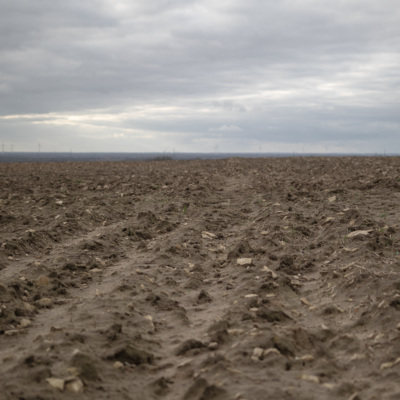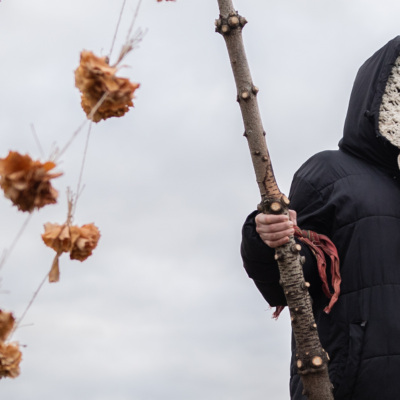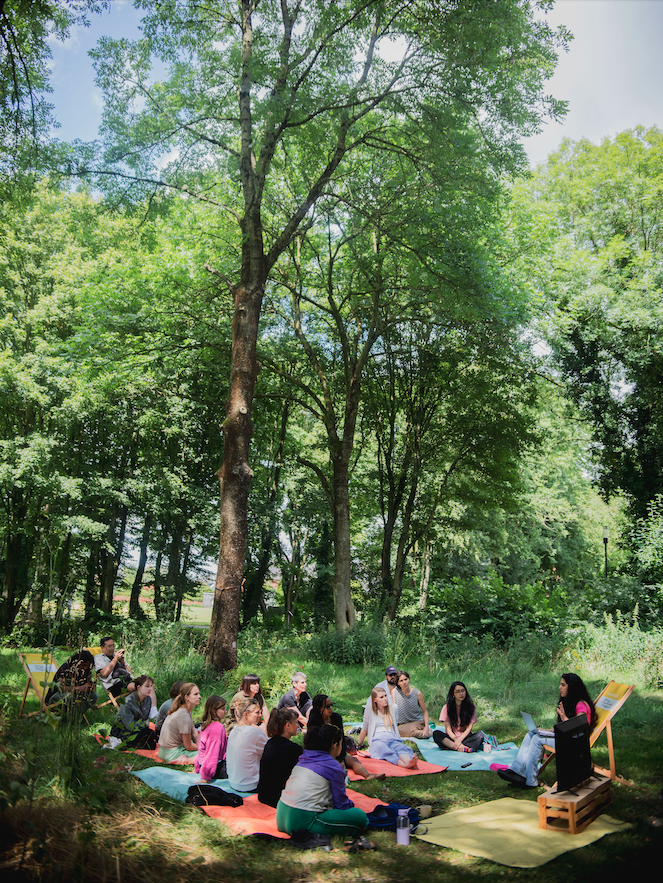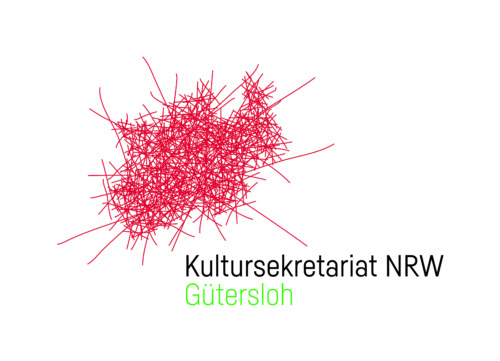Given the increase of structural inequities and social fragmentation due to geopolitical tensions, the climate crisis and its impact on the global economic system, a paradigm shift in our civilization seems inevitable. The principles, methods, knowledge and epistemologies used in this transition will be decisive for the direction and outcome of this turn. At the interfaces between multiple worlds in tension with each other, the art of our time explores more than ever the creation of bridges, connections, syntheses and ideas that reach beyond the aesthetic realm, counterbalance the catastrophe and actively contribute to building a future for all.
„Making Worlds“ comprises a series of workshops led by artists associated with the Künstlerdorf Schöppingen and a Summer School based on principles of holistic and relational learning. They offer space for experience, empathy, dialog and experimentation on concepts such as knowledge building through interspecies relationships, change through tension, inclusion, spirituality or the playful use of technology.
During the eight weekend workshops from April to November 2024, exchange and co-creation will be encouraged, thus exceeding informative knowledge. The workshops offer an in-depth insight into the respective artistic work, its epistemological diversity and the transformative character of its practice beyond the symbolic dimension.
The Summer School, taking place from July 7-14, 2024, provides a format in which these positions and further perspectives will be exchanged and discussed with a group of experts from the fields of culture, science and education. The aim is to gain insights on transferability to the broader public sphere, science and education and to jointly consider how overlaps or practices can be created that lead to an expansion of knowledge creation. The Summer School will conclude with a public weekend program featuring a group exhibition, collaborative activities, lectures and a moderated conversation (participation via Zoom possible).
The term „worldmaking“ refers to diverse conceptions of „world“ and practices of „worldmaking“ and focuses on socially engaged artistic practices that contain participatory elements and reach beyond the aesthetic realm into social contexts. They represent ways of influencing reality according to what feminist philosopher Donna Haraway has defined as the „politics of affinity“ – a pedagogical model based on conscious participation and the choice of common strategies*. The concept also draws on the practice-based research of artist, curator and writer Berit Fischer, who brings a new perspective to the field of contemporary post-representational curation, exploring how the curatorial can activate spaces and conditions for a micropolitical and holistic production of social empathy.**
„Making Worlds“ is a cooperation between Künstlerdorf Schöppingen, the Center for Interdisciplinary Sustainability Research (ZIN) at the University of Münster and the Adult Education Center (VHS) Ahaus. While Künstlerdorf is organizing the workshop program, the ZIN coordinates accompanying scientific research and a discussion to examine the sustainable transfer to the wider public. This is also where the VHS comes in, which deals with question of how we internalize and reproduce knowledge as part of adult education.
*Silvia Franceschini, Zones of Affinity, in: The Politics of Affinity. Experiments in Art, Education and the Social Sphere. Edited by Silvia Franceschini, published by Cittadellarte – Fondazione Pistoletto, p. 41.
**Berit Fischer, Towards a Micropolitical and Holistic Post-Representational Practice: A Case Study, University of Southhampton, 2023.












The workshops are held in German and English language. Participation is free of charge, working materials and catering are provided. If you are interested in participating in one or more workshops, we are happy to hearing from you!


April 20, 10am-6pm / April 21, 12-4pm
Sara Alvarado is a Colombian visual artist and creative researcher who, from a Master’s degree in Intercultural Conflict Management in Berlin to a Bachelor’s degree in Visual Arts in Bogotá has forged a deep understanding of the intersection between art and society. Her interest in culture and its constant transformation through changes in space and territory in contexts of intercultural and social conflicts nourishes her work. Her approach focuses on using different artistic practices as a research method. This allows for the analysis and resolution of conflicts, a method that proposes a space for contribution from social practices. Her intrinsic quest to understand how social and intercultural conflicts influence culture has led her down a path where art becomes a tool of inquiry.
Based on the interactions between the local community of Schöppingen and the temporary international communities associated with Künstlerdorf, we will discuss possible tensions and conflicts, focusing on potential opportunities. The Künstlerdorf gallery will be transformed into a practical thinking laboratory for the project.
May 19, 10am-6pm / May 20, 12-4pm
Mayra Citlalli Rojo Gómez is a Mexican artist and interdisciplinary researcher in visual arts and discourses of the body. She holds a PhD in Art History and developed a postdoctoral research on biomaterials. She works with critical associations between symbiosis, evolution-teratology and fluid identities that interrogate the boundaries between the human and the non-human in the plant and bacterial universes.
Monsters grow in the interstice of transformation. Their manifestations announce the rebellion of symbols and the experience of impossibility. Imagining them is the unexpected and contradictory act of the dissidents. There is no utopia more powerful than transforming daily practices. During this workshop we will make three mushroom cultures in books in order to observe, discuss, map our ideas around interspecies relations, the death of the book as a paradigm of scientific knowledge and humanism.


June 15, 10am-6pm / June 16, 12-6pm
The Escuela de Garaje originated in Bogotá in 2013 as an informal program with no consistent or permanent infrastructure; instead, it exists on very little, with schools emerging like fruiting bodies in relation to a particular place, subject, or host(s). The school is interested in knowledge and tools considered irrelevant, of low quality, or without official validity. Its general objective is collective unlearning, freely and at no cost.
At present, the escuela functions as a diasporic hub for cultural projects. Operating in contexts where its organizers are explicitly not native, the current focus involves collaboration with community kitchens, the ‚ultratranslation‘ of decolonial theory, and gardening as a means of gathering and learning.
The escuela operates as a relational anarchy project; there are no official members, and schools can be convened by anyone who has participated in one. The current iteration is convened by Mariana Murcia (Bogotá, Taurus Earth Dragon) and Santiago Pinyol (Bogotá, Sagittarius Water Dog).
The workshop of this (in)disciplinary school proposed a hands-on exploration of the intimate relationship between human beings and the microcultures of bacteria, focusing on the biopolitical dimension of fermentation and the transformations it enables. Through practical experiments with different techniques and ingredients, this escuela engaged with the entangled experiences of fermentation situated in stories of food, migration, and colonialism. Fermentation, in this context, is seen as a means to perform culture through the unearthing of metaphors, and to unveil alternative and symbiotic histories of what is, what might yet be, and what might have been. Processed foods, polluted city air, and chlorinated tap water create the foundation for the transformative techno-alchemy of fermentation rituals.
July 20, 10am-6pm / July 21, 12-4pm
Polly Brannan is an artist, curator and educator. She’s committed to producing public art, social practice, strategies and programmes collaboratively with artists and communities, co-commissioning with them to create new work for the cities and places we live in. She is inspired by user-led design and the methodologies of learning through play. Since early 2021 she has been the Artistic Director at Open School East in Margate, UK, a free, independent arts school and community space in Margate, was Education Curator at Liverpool Biennial 2012-18 and Education Curator at Serpentine Galleries 2011–13. She is Founder and Artist with network Avant Gardening and was a member of art and architecture collective, public works 2005-2011. She has curated, delivered and produced commissions and projects internationally including: Triangle Network Fellowship, Ethiopia; Istanbul Biennale 2017, Turkey and Kochi-Muziris Biennale, India 2018.
The Workshop will focus on the question ‘How do we as artists, commissioners and curators connect and embed inclusive approaches to working within civic spaces and community settings.’ Polly will share case studies of social practice and experiences, tool kits, mapping, zine making and developing ideas and proposals.


August 17, 10am-6pm / August 18, 12-4pm
Tizintizwa (Soumeya Ait Ahmed und Nadir Bouhmouch) is a poly-disciplinary art-research collective in Marrakech which acts as a set of pretexts for collective creation and cross-pollination. Their practice is based on working together and with others, on finding consonance in difference and in championing heterogeneity in nature and culture. Their collaboration is based on their sense of urgency towards rapidly eroding ancestral, artistic, social and ecological practices and knowledge. Their work looks at how rural art forms have often been relegated to the category of folklore, which distorts their perception and questions their validity as contemporary art forms. The work, for example, looks at how declining biodiversity often results in declining diversity of cultural production and expression. This “monoculturalisation” produces, in parallel, a “mono-culturalisation” of culture as a former large diversity of poetic genres and music are giving way to a homogeneous cultural landscape. This “flattening” of culture, they think, has produced a situation in which art is increasingly dissociated from the natural ecosystem.
In this workshop we will explore this kind of question with the local community by inviting people to reflect on traditional art forms and the kinds of knowledge that may be stored in them which television and mainstream art forms fail to transmit.
September 14, 10am-6pm / September 15, 12-4pm
Marei Loellmann is an artist and part of various interdisciplinary collectives. As a solo artist, she develops textile works made of ash, concrete and textiles that question and expand the properties of the materials used and the socially determined associations linked to them. In her collective practice, she dedicates herself to collaborative processes of knowledge generation that are based on lived experiences, create participation and consciously allow for polyphonic narratives. The often site-specific, collaborative works with textiles, sound, language and space create situations for conversation, collective thinking and ritual, interweaving rural with urban, local with international contexts.
During the workshop we will explore weaving as a space for conversation and how this activity – as a craft and as an artistic medium – can provide a framework for dialogical working methods. The starting point will be two approaches that will be linked together: the concept of intraaction (as opposed to interaction and in reference to Karen Barad) and the practice of deep listening (in reference to composer Pauline Oliveros), which invites us to actively listen into the sounds of everyday life rather than blocking them out. Both approaches open up perspectives for experiencing the space between or within bodies as an active process and reciprocal relationship.


October 19, 10am-6pm / October 20, 12-4pm
Franziska Winkler is an an artist and curator, who focuses on transmedial literary translations and their transgression of boundaries. In doing so, she tries to give text more freedom of movement by exploring sign language poetry and giving this literary genre more visibility. Her literary work therefore moves between several language worlds, the transmedial translation of literature and its crossing of boundaries, as well as her own text forms, which are written language, but always take sign language, which is also her first language as the daughter of deaf parents, into account.
In 2017, she founded the literature initiative „handverlesen“ together with Katharina Mevissen, where she has been the artistic project manager ever since. Handverlesen takes literature into its own hands and translates, conveys and disseminates literature in German sign language, thereby setting text in motion. In doing so, she questions the concept of literature and develops a new definition through the inclusion of sign language poetry, in which text is embodied and creates new dimensions.
November 16, 10am-6pm / November 17, 12-4pm
Sam Hopkins’ artistic practice is attentive to the ways in which narratives and truths are encoded and produced by different media. His work is rooted in Kenya and engages with specific networks to collectively interrupt authoritative narratives of power. He explores various ways of ‚co-producing‘ artworks as counter narratives that can be read both within and beyond the gallery/museum. Hopkins has participated in various biennales, has exhibited at a wide range of museums and galleries and his work is included in a number of public art collections. He currently works as an Assistant Professor at the Academy of Media Arts in Cologne and continues to develop his research in Nairobi.
In the workshop ‚Digital Bazes‘, we will delve into the transformative power of sharing digital information in face-to-face, interpersonal contexts. Together, we will examine the radical possibilities that emerge when we prioritize human connection and collaboration over digital isolation. Participants will engage in hands-on activities and discussions to explore the impact of this approach on community-building, creativity, and social change.

The Summer School, taking place from July 7-14, 2024, is part of the CAP (Curating for Advanced Practices) program of the Stiftung Künstlerdorf Schöppingen. CAP aims to develop new strategies in the arts and beyond.
With:
Fatin Abbas, Sara Alvarado, Atefe Asadi, Yana Bachynska, Polly Brannan, Federico Cuatacuatl, Berit Fischer, Escuela de Garaje (Mariana Murcia / Santiago Pinyol), Amauta García and Davida Camargo, Julia Haarmann, Francisca Jiménez, Marei Loellmann, Julius Metzger, Camilo Pachón, Lea Spahn, Cornelia Steinhäuser, Nikolaus Schneider and Tizintizwa (Soumeya Ait Ahmed/ Nadir Bouhmouch)
PUBLIC KEYNOTE LECTURES (ONLINE):
Nikolaus Schneider and Lea Spahn in conversation: Learning as Relation
Monday, July 8, 3-4 pm
Zoom registration link: https://bitly.cx/8xad
Berit Fischer: Micropolitical Ecopedagogies
Wednesday, July 10, 3-4 pm
Zoom registration link: https://bitly.cx/9DMiX
Polly Brannan: Learnings from social practice – Approaches from the Collective, Grassroots, Institution and Educational settings
Thursday, July 11, 3-4 pm
Zoom registration link: https://bitly.cx/Pvd3
PUBLIC PROGRAM (ON SITE):
Saturday, July 13:
Making Worlds, group exhibition, open 10am-10pm
Polly Brannan: Making work with and for communities – Arts Practice approaches within civic and community settings, 10-12 am
Picnic Lunch, 12-2 pm
“A Making Worlds conversation“, moderated by Julia Haarmann, 3-4:30 pm
Barbecue, from 6pm
Sunday, July 14:
Cornelia Steinhäuser: Making Maps – Making Worlds, 10-12 am
Making Worlds, group exhibition, open 10am-6pm and tour, 2-3 pm
Picnic, 12-5 pm

Berit Fischer is an artist, curator, scholar, writer, and an editor based in Berlin. Her research interests include civic engaging, embodied, and listening practices, feminist- and eco-pedagogies, critical spatial practices, and a holistic and experiential knowledge production. Her practice often unfolds in forms of affective encounter and relational (re-)learning that strives to activate agency and an active micropolitics, fields of action and spaces for critical and ecological consciousness raising. It seeks engagement that mobilises actions of care, regeneration, and de-colonisation from capitalist logics towards a response-able being-with the world.
2023 she published the practice-based research Towards a Micropolitical and Holistic Post-Representational Practice: A Case Study. It offers a new perspective to the field of contemporary post-representational practice with the specific angle of examining how the curatorial can activate spaces and conditions for a micro-political and holistic making of empathy. She explores this research through her socio-ecological practice frameworks such as the nomadic Radical Empathy Lab or the (Re-)Gaining Ecological Futures festival.

Nikolaus Schneider has been the director of the current forum Volkshochschule in Ahaus and the surrounding area since 2009. He studied literature and musicology in Würzburg and Tübingen and completed his doctorate with a thesis on the acoustic qualities of poetry in the 18th century. He is interested in transformation through education and transformation processes in education, currently particularly in the Ahaus Sustainability Round Table project.
Lea Maria Spahn is a researcher and performance artist with a feminist attitude. She explores the intersections between art and education in motion and is interested in intergenerational artistic formats, body biographies and cultural education in rural areas. She is currently researching in the EU Horizon project „Transforming Education for Democracy through Aesthetic and Embodied Learning, Responsive Pedagogies and Democracy-as-becoming“ (AECED) and is module leader in the continuing education master’s program „Cultural Education in Schools“ at the Philipps University of Marburg.
How do we learn? Media-based or in social interactions? In defined learning groups or in informal contexts? We discuss successful learning processes and their prerequisites. How are they situated in the areas of tension between standardization and self-organization, control and co-design, regulation and collaboration? Alternative learning theories, which have been around for a long time, focus on the effectiveness of relationships and collective learning.

Polly Brannan is an artist, curator and educator (see workshop for a biographical note).
In this lecture she will focus on the question: what are the learnings, methodologies and approaches of social practice? Always presenting from her perspective as a social practice artist she will share a series of case studies exploring how this has shaped her work in the following areas and how this is always an extension of her own practice and approach as an artist;
. The Independent, Collective and Grassroots: Sharing individual and collective practices including her work with the grassroots arts and environment collective avant gardening which she co-founded and her work as artist member of arts and architecture collective, public works.
. The Arts Institution: Exploring how she embedded her social practice work into her curatorial and commissioning approaches as a curator in the institution as part of an integrated curatorial team approach, developing community and artist led co-commissioning strategies.
. The Art School and Educational Setting: Sharing her most recent work as Artistic Director at Open School East, a free, alternative art school in Margate, UK. Polly will share her work on developing approaches of training, teaching and exploring social practice within the art school environment and the development of a new 2- year model approach ‚Building an Art School for the Future’ which looks at deep, embedded approaches to working within civic and community settings with local community, art students, alumni and invited guests to develop the schools curriculum.

Cornelia Steinhäuser is a post-doctoral researcher and lecturer at the Institute for Landscape Ecology, and a member of the Center of Interdisciplinary Sustainability Research (ZIN) at Münster University. She has been both an observer and an active participant in the transformation process of Künstlerdorf over the past two years. In the course of this ongoing collaboration, she has engaged with fellows and their artistic practices, as well as with the citizens and landscape of Schöppingen, focusing on the multidimensional aspects of human-environment relations in gardening and water places. She emphasizes community-building potentials through (social) permaculture and the multifaceted meanings of water across cultures. Together with a group of students, she developed the project „Making Maps – Making Worlds“, which will be introduced during the Summer School. This story map is also envisioned to integrate different forms of knowledge and perception on water and water places from the perspective of the diverse persons who have their say on the map, as well as critically discussing the representation of their experience via the story map, which can be accessed here.
In cooperation with:


With kind support by:













